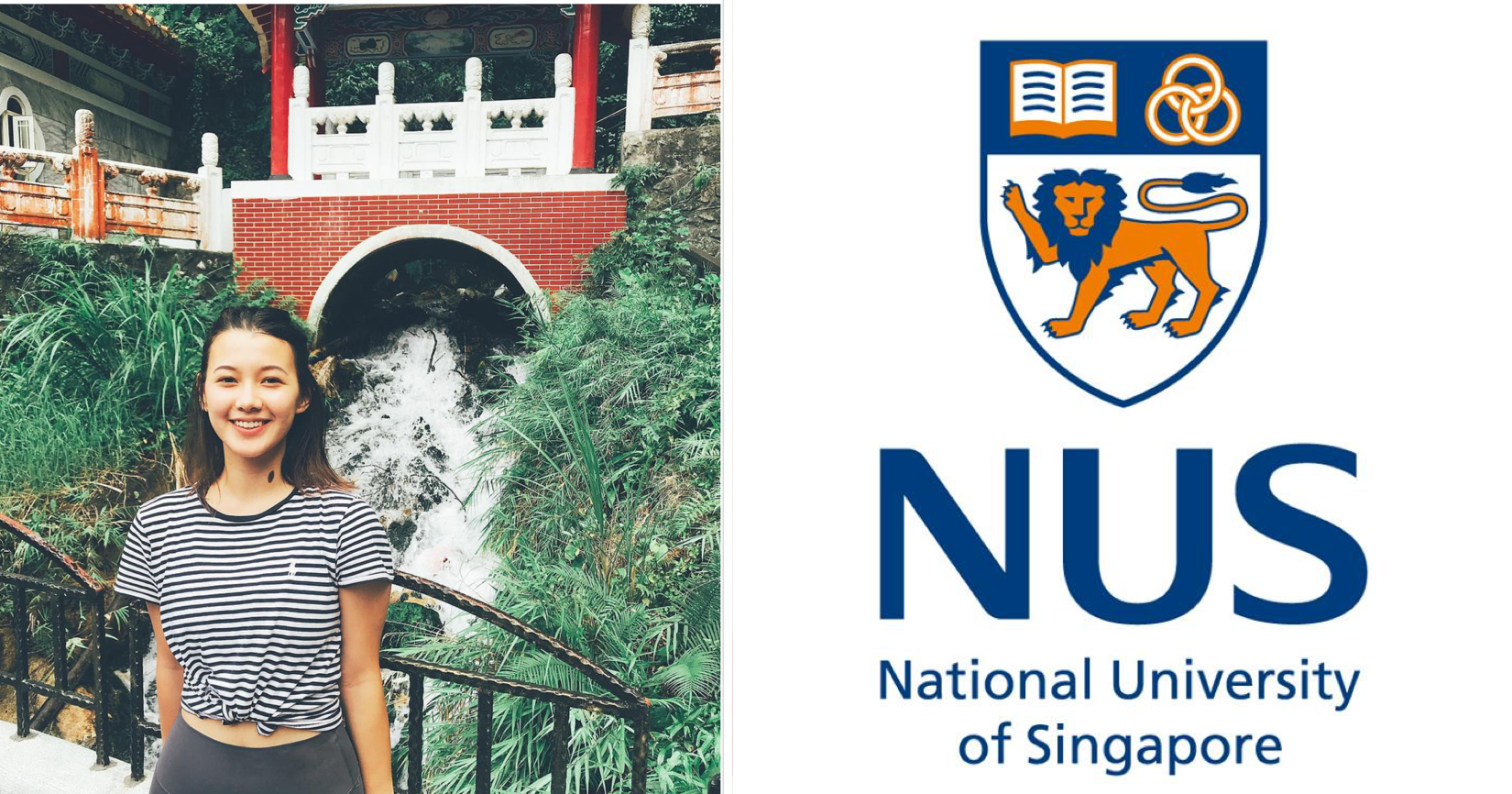The National University of Singapore (NUS) announced on June 10 in a media release that it will accept the recommendations of the Review Committee on Sexual Misconduct in full.
The committee was set up after undergraduate Monica Baey revealed in Instagram posts that she was illegally filmed while showering in a hostel toilet by fellow student Nicholas Lim.
However, the committee emphasised that previous cases of sexual misconduct that have been ruled on by the Board of Discipline cannot be reopened, after consulting external legal advisors.
NUS President to divulge implementation plan
Hsieh Fu Hua, Chairman of the Board of Trustees said:
"We feel that the recommendations are informed, balanced and robust. It reflects our community’s common desire for tougher penalties for offenders and greater support for victims, and for fostering an enduring culture of respect and support on campus."
Hsieh added that NUS President Professor Tan Eng Chye will make a statement on the implementation plan for these measures "in the coming days".
Recommendations
The committee made 10 recommendations they believe will set a new standard for disciplinary actions in cases of sexual misconduct.
Kay Kuok, Chair of the Committee, said: "The higher benchmark will send a strong message that the university does not tolerate sexual misconduct and serve as a strong deterrent."
Recommendation 1 -- Tougher penalties
The committee recommended that a minimum suspension of one year to be given for serious offences, which cannot be overruled by the BOD or the Disciplinary Appeals Board (DAB).
For cases of severe or aggravated sexual misconduct offences, expulsion may be recommended at the first BOD hearing.
The committee also recommended measures to deal with offenders after an initial penalty is laid down, such as:
- A 'no-contact protocol' separating offender and victim.
- Noting the offender's suspension on their degree for three years after it was conferred.
- Offenders having to be certified by a counsellor or medical professional before they can return to campus.
In addition to the above, the BOD can lay down additional measures, including a ban from housing premises and campus or suspension from "academic and non-academic privileges".
Recommendation 2 -- Giving victims a greater voice in the disciplinary process
Victims will have more rights and be more involved in the disciplinary process, including:
- Being kept up-to-date on the disciplinary proceedings.
- Filing a statement of facts before the BOD hearing.
- Filing an impact statement.
- Appearing before BOD to provide clarifications on the victim’s statement.
- Being accompanied by a care officer at the BOD hearing.
- Having an avenue for victims to request for a review of BOD and/or DAB outcomes in exceptional circumstances as spelt out in the full Report.
Recommendation 3 -- Providing greater empathy and support to victims
A care officer will be assigned to each victim from the point an incident is reported.
The officer will help the victim deal with law enforcement, provide support during the disciplinary process, and help the victim access the various care units.
Recommendation 4 -- Set a clear timeline for disciplinary process and streamline number of entities involved
The committee recommended streamlining the number of different NUS units involved in the disciplinary process, and to set a flexible timeline for it.
Recommendation 5 -- Enhancing the victim support framework and network
The committee supports NUS's efforts to set up a Victim Care Unit (VCU), and recommends:
- Care officers to have relevant experience in counselling, social work, psychology or a related field.
- The VCU to work closely with other support units in NUS.
- A website set up to provide information and advice for victims, codes of conduct, and include clear reporting/support mechanisms such as helplines, contact numbers and whistleblowing channels.
Recommendation 6 -- Rehabilitation of offenders
The committee supports NUS's move to have dedicated staff from the Office of Student Affairs (OSA) to advise offenders, who may need support in mental health.
OSA will work with the Office of Student Conduct to ensure offenders can only return to campus after their suspension once they have fulfilled the necessary criteria.
Recommendation 7 -- Education on respect and consent
The committee supports NUS's move to introduce a new compulsory module for all students and staff called "Respect and Consent Culture", to begin in Academic Year 2019/2020.
It also noted that NUS will conduct training for first responders to teach them how to handle sexual misconduct cases.
Recommendation 8 -- Adequacy of campus security and infrastructure
The committee said NUS should improve its security infrastructure in hostels, and supported the announcement of more security guards, roving security patrols, better CCTV coverage, and secure shower cubicle and restroom locks.
It also encouraged a culture of safety and mutual care among students and staff.
Recommendation 9 -- Review of past disciplinary cases
The committee announced that after consulting with external legal advisors, it cannot reopen previous cases on which the BOD has made a formal ruling and meted out sanctions.
Its recommendations are intended to form the basis of a tougher stance on sexual misconduct going forward.
Recommendation 10 -- Commitment to ongoing review
The victim support and sanctions framework will be reviewed every two years. The
committee stated that this was "ongoing work" and recommended NUS to conduct reviews on a regular basis.
You can also watch a video with details of the recommendations on NUS's website.
NUS also shared a post of the announcement on their Facebook page.
Related stories:
Top image from Monica Baey's Instagram and NUS's Facebook page.
If you like what you read, follow us on Facebook, Instagram, Twitter and Telegram to get the latest updates.
